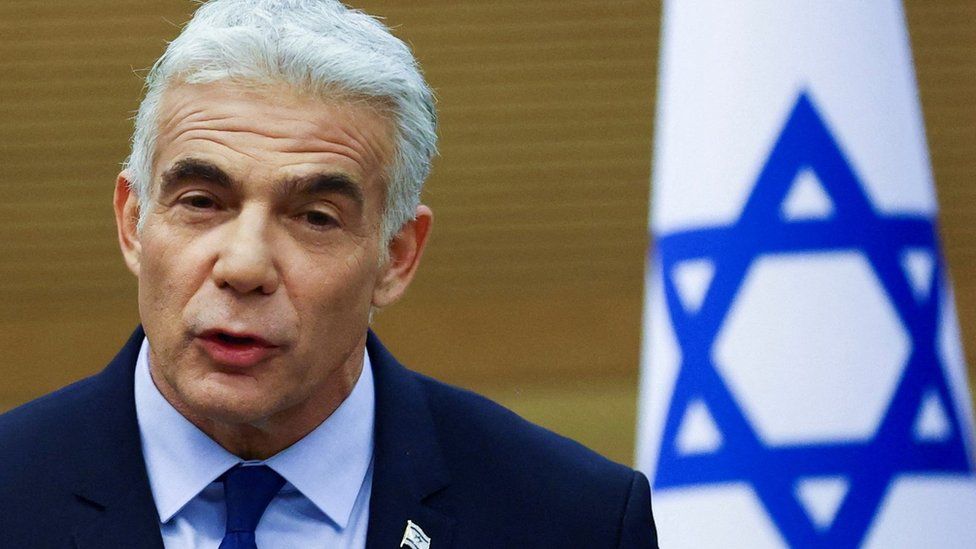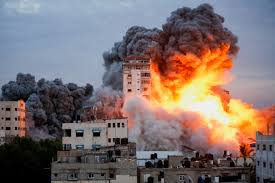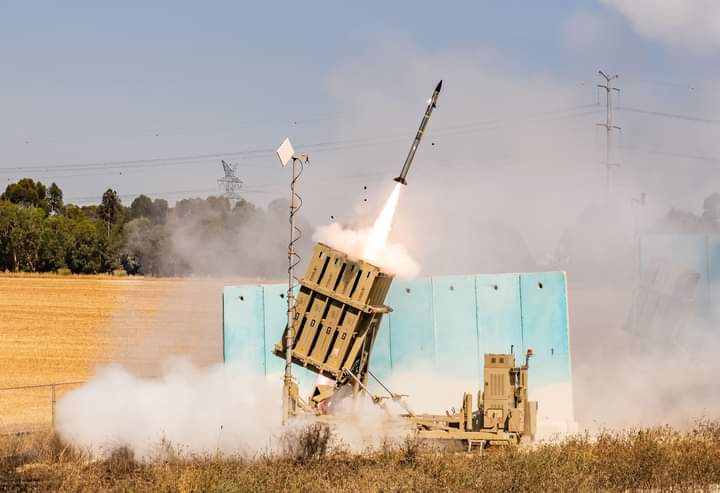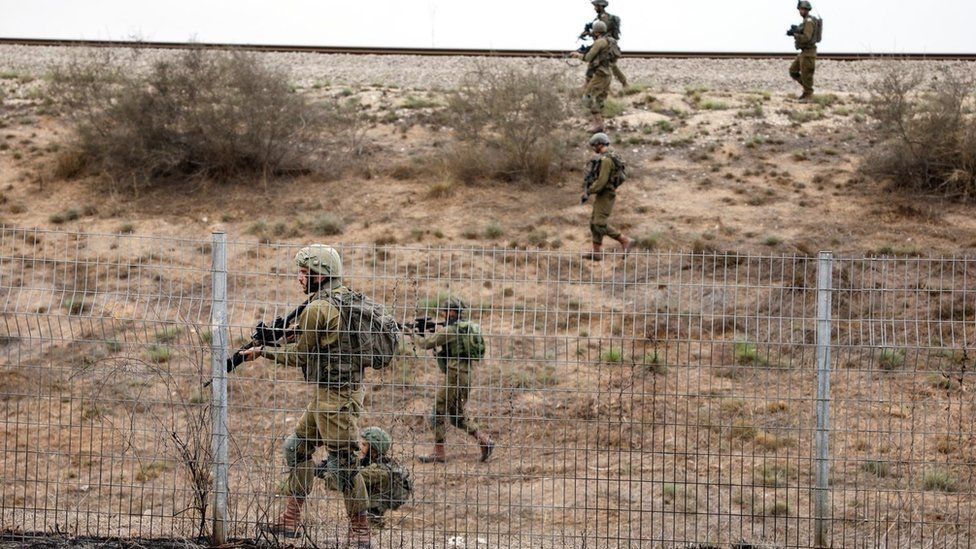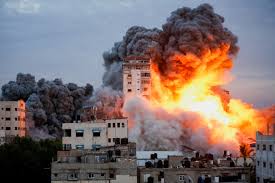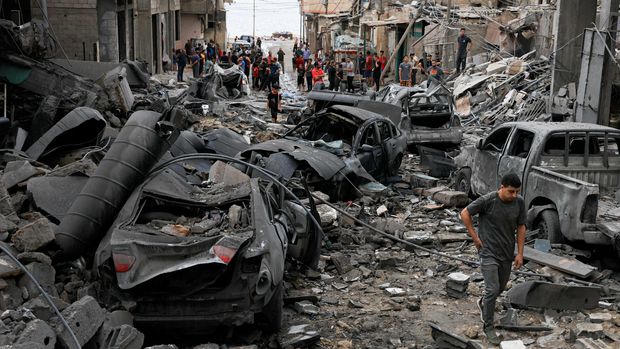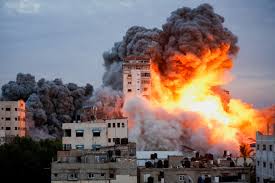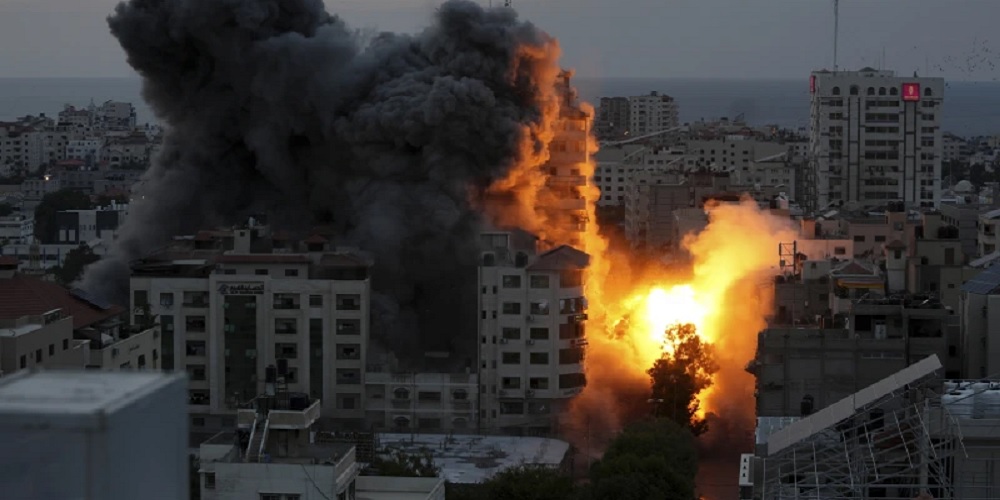Israeli Prime Minister Benjamin Netanyahu has expressed cautious hope for a deal to secure to release of more hostages held by the Islamist group Hamas, who have been held for more than a month after the brutal October attack.
“There could be (an agreement), but I think the less I say about it, the more I increase the chances it materialises,” Netanyahu said in an interview with U.S. broadcaster NBC on Sunday.
If a deal is reached, it will only be the result of military pressure, Netanyahu said, adding: “That’s the one thing that might create a deal.”
Netanyahu argued it was also only the Israeli military’s ground offensive in the Hamas-controlled Gaza Strip that had created any movement in negotiations.
“If a deal is available, well, we’ll talk about it when it’s there. We’ll announce it if it’s achieved,” he went on.
NBC and other U.S. media outlets reported, citing government sources, that there were discussions that Hamas could release around 80 women and children in return for Palestinian women and teenagers detained in Israel.
There was no official confirmation of this. Netanyahu also did not go into any details of a potential deal.
U.S. President Joe Biden’s National Security Advisor, Jake Sullivan, told ABC that negotiations were under way, with Qatar involved and the U.S. government actively engaged.
“There are efforts to secure a deal that would involve the release of hostages,” Sullivan said, adding that Biden would not rest until such an agreement was reached.
“I have to be careful about what I say publicly about this because it is of course a delicate and sensitive negotiation,” Sullivan said.
Hamas is still holding 239 hostages, according to Israel.
The statements came as heavy fighting continues in Gaza, with violence near the strip’s main hospital escalating fears about the fate of staff and patients as fast-depleting fuel supplies widen the humanitarian crisis among Palestinian civilians.
The situation in the al-Ahli hospital, the only hospital in Gaza City still running, “is catastrophic,” said doctor Ghassan Abu Sitta.
He said he had performed more than 10 very painful surgical procedures on people without anaesthesia and that blood supplies have also run out.
Gaza’s medical facilities are in increasing focus as the conflict rages on.
Sitta moved there from al-Shifa, the biggest medical complex in the Gaza Strip, now caught up in Israel’s ground offensive.
The Israel Defense Forces (IDF) say Hamas has an underground control centre near al-Shifa and is using the hospital as a shield.
Many fear the building could soon be the target of a major attack.
Some 10,000 people are still in the hospital, witnesses say, including some too injured to be moved.
Al-Shifa director Mohammad Abu Salamia said 40 children in critical condition could die at any moment.
Salamia also denied Israeli statements that his hospital rejected fuel supply under pressure from Hamas, calling the claims a “lie and defamation.”
His response came after the Israeli Foreign Ministry reported that Hamas, which rules Gaza, prevented the hospital from using 300 litres of fuel that Israeli soldiers had placed in containers next to the hospital on Saturday evening.
Salamia did not deny the reports about the containers but said the quantity would not be enough to run the hospital generators for “fifteen minutes.”
He said his team was afraid of being shot at if they left the hospital in order to take the containers.
If Israel really wanted to supply fuel, it could have sent it in cooperation with the Red Cross or another international organization, he said.
The World Health Organization (WHO) says conditions in the hospital are catastrophic, with care barely possible due to the nearby fighting and lack of fuel.
Earlier, the WHO lost contact with staff at al-Shifa. In the last two days the hospital in Gaza City had reportedly been “attacked multiple times, leaving several people dead and many others injured,” the organization said.
Witnesses saw tanks surrounding the hospital, the WHO said.
All of Gaza’s hospitals are struggling, and videos and photos shared online show dozens of injured men, women and children lying on the floor of crowded corridors, waiting for treatment.
Gaza as a whole has been under intense bombardment by Israel since the Hamas terrorist attacks on October 7, which left about 1,200 people in Israel dead. Israeli ground forces have now penetrated deep into Gaza.
The Israeli attacks since October 7 have killed over 11,000 people according to the Hamas-run Health Ministry in Gaza.
Israel’s army says it is not deliberately targeting the health facility, but going after militants.
There were also further clashes on the Israeli-Lebanese border. There have been exchanges of fire on the border almost every day since the war began, leading to fears the war could spread to further fronts.
“An IDF fighter jet and aircraft struck a number of terror targets belonging to the Hezbollah terrorist organization, including a military compound containing a weapons storage facility and military infrastructure,” the Israeli military said in the evening.
That came after Lebanese state news agency NNA reported that Israeli warplanes and drones had been flying over the border area and attacking targets since the morning.
